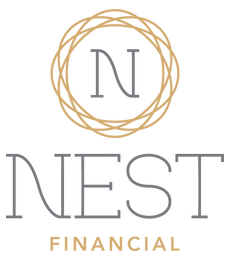When it comes to retirement income strategies, high net worth individuals face unique challenges and opportunities. While the basics of saving and investing apply to everyone, the affluent have the means to leverage a broader array of strategies to ensure their retirement is not just comfortable but also financially dynamic. In this post, we’ll delve into retirement income plans that go beyond mere savings, offering the wealthy a roadmap to a prosperous and worry-free retirement.

Tailored Investment Strategies
Creating a retirement income plan for the wealthy isn’t just about following the standard advice; it’s a process that demands a deep understanding of one’s financial goals and the development of a customized investment portfolio to achieve those aims while adeptly managing risk.
Assessing Your Investment Portfolio:
The journey begins with a meticulous evaluation of your current investments. This isn’t merely a cursory glance but a detailed analysis as to whether your assets are primed to offer a consistent income and the potential for growth. Diversification plays a pivotal role here, but it’s not limited to spreading investments across various asset classes. It extends to diversifying within asset classes, employing a range of investment strategies, and ensuring geographical diversity. This multifaceted approach to diversification helps mitigate risk and capitalize on different economic conditions globally.
- Risk Tolerance and Time Horizon: Understanding your risk tolerance and investment time horizon is crucial. High net worth individuals often have a higher risk tolerance, given their broader financial safety net, but this doesn’t mean adopting a one-size-fits-all approach. Tailoring your investment strategy to match your personal comfort with risk and the time frame for your retirement goals ensures that your portfolio aligns with your expectations and lifestyle needs.
- Strategic Asset Allocation: This involves more than just choosing the right mix of stocks, bonds, and cash. For the affluent, it can mean delving into specific sectors, industries, and even individual stock selections that resonate with their broader financial objectives and ethical values. Regular rebalancing is essential to maintain the desired asset allocation over time, adapting to market changes and shifts in personal circumstances.
Incorporating Alternative Investments:
Beyond the traditional stock and bond markets lie alternative investments, which can play a crucial role in a high net worth individual’s portfolio. These investments, which include real estate, private equity, and hedge funds, bring distinct advantages. They often march to the beat of their own drum, showing reduced correlation with traditional markets, which can lead to better portfolio diversification and risk management.
- Real Estate: Beyond mere property ownership, real estate investment can diversify income through rental yield and potential capital appreciation. Whether it’s commercial real estate, residential rentals, or real estate investment trusts (REITs), each offers unique benefits and considerations.
- Private Equity: Investing in private companies can offer substantial returns, albeit with higher risk and liquidity concerns. For those with a keen eye for business and a willingness to engage in more hands-on investments, private equity can be a rewarding addition to a retirement portfolio.
- Hedge Funds: While often associated with higher fees and complexity, hedge funds can provide access to diversified strategies and alternative assets. They can serve as a hedge against market volatility, potentially offering more stable returns in varied market conditions.
By integrating these tailored investment strategies, high net worth individuals can construct a robust, dynamic retirement income plan that not only seeks to preserve capital but also to grow it, ensuring a retirement that is as financially secure as it is fulfilling.
Smart Tax Planning
Efficient tax planning transcends mere compliance; for high net worth individuals, it is a strategic pillar crucial to maximizing retirement income. It’s about making informed decisions today that will minimize your tax liabilities tomorrow, ensuring that more of your wealth is working for you in the long run.
Tax-Efficient Withdrawal Strategies:
Understanding the intricate rules surrounding tax-advantaged accounts and other investment vehicles is foundational to smart tax planning. The timing and method of withdrawals from these accounts can have profound implications for your tax liability and, consequently, the longevity of your retirement income.
- Strategic Withdrawal Sequencing: Develop a withdrawal sequence that minimizes taxes over the long term. This might involve tapping into taxable accounts first, followed by tax-deferred accounts, and finally tax-exempt accounts. Each individual’s situation is unique, so a tailored approach is essential.
- RMD Considerations: Required minimum distributions (RMDs) from retirement accounts can push you into a higher tax bracket. Planning in advance can involve strategies to minimize RMDs, such as considering Roth conversions or charitable donations directly from an IRA.
Leveraging Tax-Deferred Growth:
Tax-deferred accounts, such as IRAs and 401(k)s, are cornerstones of retirement planning, allowing your investments to grow without the drag of annual taxes. But the strategy doesn’t stop at deferral; it’s about knowing how to balance these with tax-exempt investments to optimize your tax situation in retirement.
- Roth Conversions: Regularly assess the potential benefits of converting tax-deferred assets into Roth accounts. While this entails paying taxes now, it could result in significant tax savings in the future, particularly if you expect to be in a higher tax bracket or if tax rates rise.
- Municipal Bonds: For those in higher tax brackets, municipal bonds can be a compelling component of the investment portfolio. The interest from these bonds is often exempt from federal income tax and, in some cases, state and local taxes, providing an efficient source of income in retirement.
- Health Savings Accounts (HSAs): Don’t overlook HSAs as a tax-advantaged investment vehicle. Contributions are tax-deductible, growth is tax-free, and withdrawals for qualified medical expenses are not taxed. For high net worth individuals, HSAs can serve as an additional tool for tax-efficient wealth accumulation and medical expense planning.
Incorporating these sophisticated tax planning strategies into your retirement planning ensures not just compliance but optimization, allowing your wealth to compound more effectively and support a more prosperous and tax-efficient retirement.

Estate and Legacy Planning
For affluent individuals, retirement planning transcends the mere accumulation and preservation of wealth—it’s intrinsically linked to how that wealth is distributed and utilized to create a lasting legacy. Effective estate and legacy planning ensures that your wealth not only supports you throughout your retirement but also benefits your chosen heirs or causes in the manner you envision.
Comprehensive Estate Planning:
Estate planning for the wealthy is a sophisticated process that extends beyond the basics of wills and trusts. It’s about developing a cohesive strategy that reflects your values, addresses complex legal landscapes, and anticipates future needs and potential challenges.
- Family Limited Partnerships (FLPs): FLPs offer a strategic way to manage and transfer family assets while providing legal protection and tax benefits. By establishing an FLP, high net worth individuals can retain control over their assets while gradually transferring ownership to family members, often at reduced tax rates.
- Charitable Remainder Trusts (CRTs): CRTs are a powerful tool for individuals who wish to support charitable causes while receiving income during their lifetime. By placing assets in a CRT, you can receive regular payments and claim a tax deduction, with the remainder going to your chosen charity upon your passing.
Philanthropy and Legacy:
Philanthropy can be a profound component of your legacy, reflecting your values and making a lasting impact on the world. Incorporating charitable giving into your estate plan not only provides tax advantages but also allows you to shape a legacy that extends beyond financial wealth.
- Strategic Charitable Giving: Consider establishing donor-advised funds or private foundations to centralize your philanthropic efforts, offering you control over how your contributions are distributed over time. These vehicles can provide immediate tax benefits while allowing you to make meaningful contributions to causes you care about.
- Integrating Legacy Goals: Your estate plan should echo your life’s values and achievements. Whether it’s funding scholarships, supporting research, or contributing to community projects, aligning your philanthropic vision with your financial legacy ensures that your impact endures.
- Family Engagement: Involving family members in philanthropic decisions can foster a sense of shared purpose and continuity. It’s an opportunity to impart values to future generations, ensuring your legacy of giving and community involvement lives on.

Conclusion
Retirement planning for high net worth individuals goes beyond mere savings. It’s about crafting a dynamic, flexible plan that not only grows wealth but also aligns with personal goals and legacy aspirations. With the right strategies in place, the wealthy can achieve a retirement that’s not just financially secure but also rich in purpose and fulfillment.
FAQs
What makes retirement planning for high net worth individuals unique?
High net worth individuals face distinct challenges and opportunities in retirement planning. Their financial strategies go beyond basic saving and investing, leveraging a broader array of sophisticated techniques. This includes tailored investment strategies that involve a deep analysis of one’s financial goals, strategic asset allocation, and incorporating alternative investments like real estate, private equity, and hedge funds for diversified income sources. These approaches ensure a retirement plan that is not only comfortable but financially dynamic and secure.
How do high net worth individuals incorporate tax planning into their retirement strategy?
For affluent individuals, tax planning is a crucial element of maximizing retirement income. Strategies involve understanding the rules surrounding tax-advantaged accounts and developing tax-efficient withdrawal strategies to minimize liabilities. This includes sequencing withdrawals to minimize taxes, considering Roth conversions, and leveraging tax-deferred growth opportunities. Efficient tax planning ensures that a larger portion of one’s wealth is preserved for retirement and future generations, making it a key pillar of a comprehensive retirement income plan.
What role does estate and legacy planning play in retirement planning for the wealthy?
Estate and legacy planning is integral for high net worth individuals, extending beyond wealth accumulation to how wealth is distributed and utilized to create a lasting legacy. This process includes sophisticated estate planning tools like Family Limited Partnerships (FLPs) and Charitable Remainder Trusts (CRTs), which help manage and transfer assets while providing tax benefits and supporting charitable causes. Additionally, incorporating philanthropy and engaging family members in legacy goals ensures that one’s values and achievements are reflected in their financial legacy, making a meaningful impact that transcends financial wealth.
This article is brought to you by the wizard behind the scenes with 23 years of experience, Dan Dillard. Of course with his workshop of helpers including some handy hi-tech sourcing.
If you’re finding it challenging to stay on top of all the changes, connect with our financial planning professionals by scheduling a no-obligation call. At NEST Financial, we can help make crypto not quite so cryptic.
Find us on:
LinkedIn Facebook Yelp Twitter
If you like reading more entrepreneurial stories In Austin check out Dan’s other company foundingAustin. If you are into podcasts click here.
DISCLAIMER: We are legally obligated to remind you that the information and opinions shared in this article are for educational purposes only. These are not financial planning or investment advice. For guidance about your unique goals, drop us a line at info@nestfinancial.net

